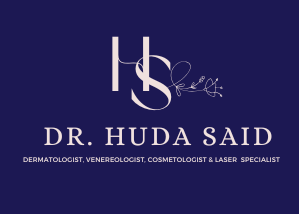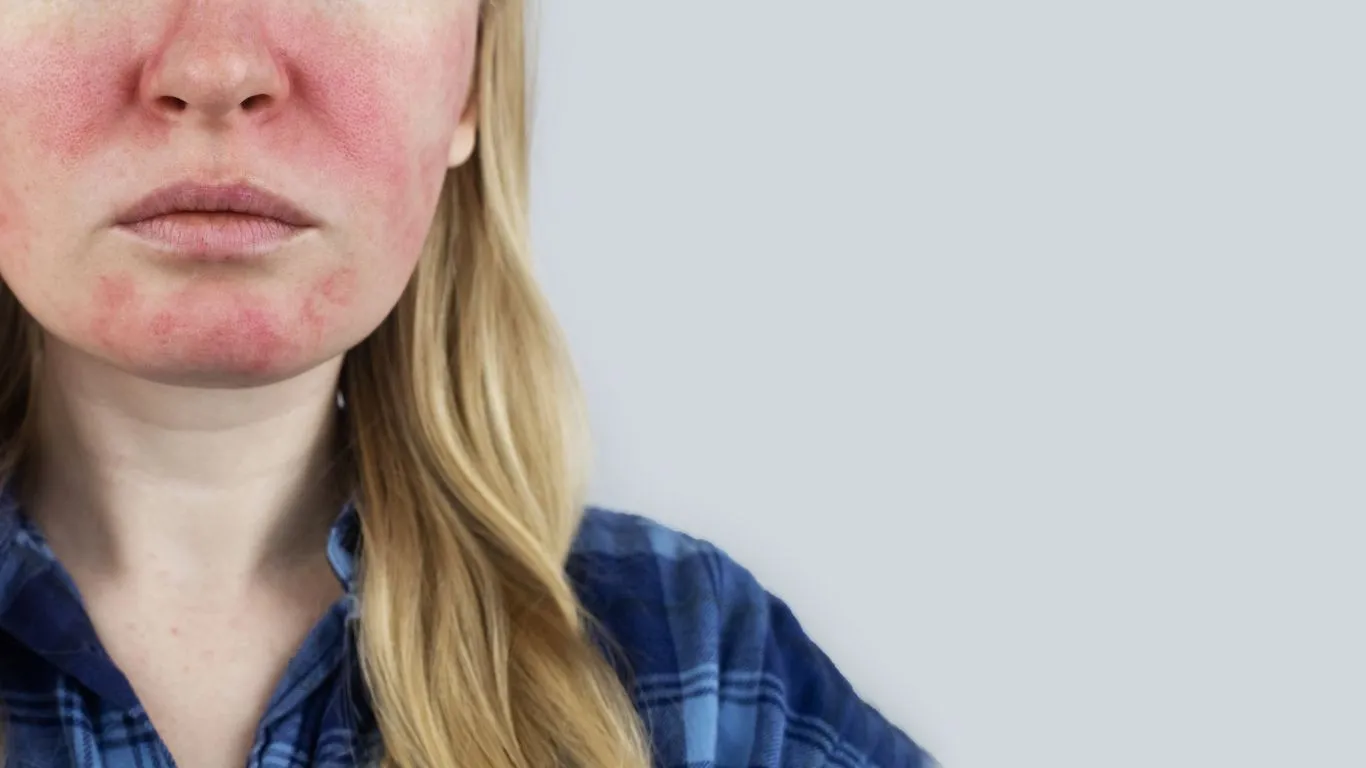Rosacea is a chronic skin condition that primarily affects the face, characterized by persistent redness and visible blood vessels. It is more common among adults, especially women, and can significantly impact quality of life if not properly managed.
Types of Rosacea
There are several types of rosacea, which can be distinguished based on accompanying symptoms:
- Erythematotelangiectatic: Causes facial redness and prominently visible blood vessels.
- Papulopustular Rosacea: Also known as acne rosacea, it leads to the appearance of pustules resembling acne.
- Ocular Rosacea: Most symptoms are concentrated around the eyes.
Symptoms of Rosacea
Although rosacea is a chronic condition, its symptoms often manifest in flare-ups, with periods of symptom-free intervals followed by exacerbated symptoms.
Symptoms typically develop gradually, starting with temporary redness on the nose and cheeks that can become permanent. Over time, rashes and small blood vessels may appear under the skin, leading to increased thickness and firmness if untreated. Occasionally, symptoms may extend to larger areas of the face, neck, and chest.
In general, symptoms include:
- Facial Redness: Concentrated in the nose, cheeks, forehead, chin, neck, and chest. In some cases, the reddened skin may become rough and flaky, particularly on the nose.
- Appearance of Fine Red Lines: May appear on the cheeks and nose.
- Red Bumps and Pustules: Similar to acne and may contain pus.
- Warmth or Heat Sensation: Accompanied by pain, tingling, or burning in the affected areas.
- Eye Irritation: Can lead to pain, redness, itching, tearing, dryness, or swelling, with a sensation of something in the eyes.
Read more: Warts: Types and Treatments
Causes of Rosacea
The exact causes of rosacea remains unclear, but it is believed to result from a complex interaction between genetic and environmental factors, with various triggers that may cause symptoms to appear.
Key causes include:
Vascular and Inflammatory Changes
Among them we mention the following:
- Neurovascular Inflammation: Resulting from dysfunction in the nervous and immune systems, leading to an inflammatory response and dilation of capillaries.
- Telangiectasia: Small blood vessels near the skin’s surface become more visible.
Genetic and Hereditary Factors
The likelihood of developing rosacea increases with a family history of the condition. Some studies have linked specific genes to a higher risk.
Infections
Some studies suggest a connection between certain infections and the onset of rosacea, such as Helicobacter pylori in the gastrointestinal tract or infections caused by Demodex folliculorum mites.
Common Triggers
Several factors can trigger rosacea symptoms, including:
- Sun exposure.
- Psychological stress and tension.
- Smoking or exposure to cigarette smoke.
- Consuming spicy foods.
- Using specific products or creams.
- Drinking alcohol.
Treatment for Rosacea
Treatment options include:
Medications
Treatment may involve topical creams, ointments, or oral medications. The choice of treatment often depends on the type and severity of rosacea. A doctor may prescribe a combination of medications.
Topical Treatments
Various gels or creams can help reduce inflammation and alleviate skin discoloration, such as:
- Azelaic acid.
- Brimonidine or Oxymetazoline.
Antibiotics
Help reduce bacteria on the skin and alleviate redness and swelling, such as Clindamycin.
Laser Treatments
Aim to induce vasoconstriction, reducing visibility and improving appearance. This is done in sessions targeting visible vessels, often requiring several sessions for noticeable and lasting results.
Surgery
If previous treatments do not alleviate symptoms, removal of thickened skin may be necessary using a scalpel or special scraping tools.
Self-Care Tips
To alleviate symptoms, consider the following advice:
- Avoid known triggers that exacerbate the condition.
- Use gentle skincare products suitable for sensitive skin.
- Maintain an appropriate cleansing and moisturizing routine.
References:
- Moawad, H., MD. (2024, March 26). What it looks like, causes, and treatment. Verywell Health. https://www.verywellhealth.com/rosacea-overview-4801740
- Website, N. (2023a, May 17). nhs.uk. https://www.nhs.uk/conditions/rosacea/

